Problem: To minimize per-message charges, I'd like to restrict messages by method name. Per the picture below, I need to know to which clients SignalR will send a message in the following case:
1.) Create Hub "/MyHub"
2.) 3 users (on Angular clients) register with the Hub, with a method named "Post_A"
3.) Then 2 different users register with the same Hub with a method named "Post_B"
4.) If the API server sends an update via Clients.All.SendAsync("post_B", dto) will it only go to users 3 & 4? Or will that message go to all five users?
Bonus! If the answer is that all messages go to all users, is there an option without using groups? I don't think groups will work w/o a lot of additional overhead each time a user views a new post (there will be thousands of posts).
Thank you!

